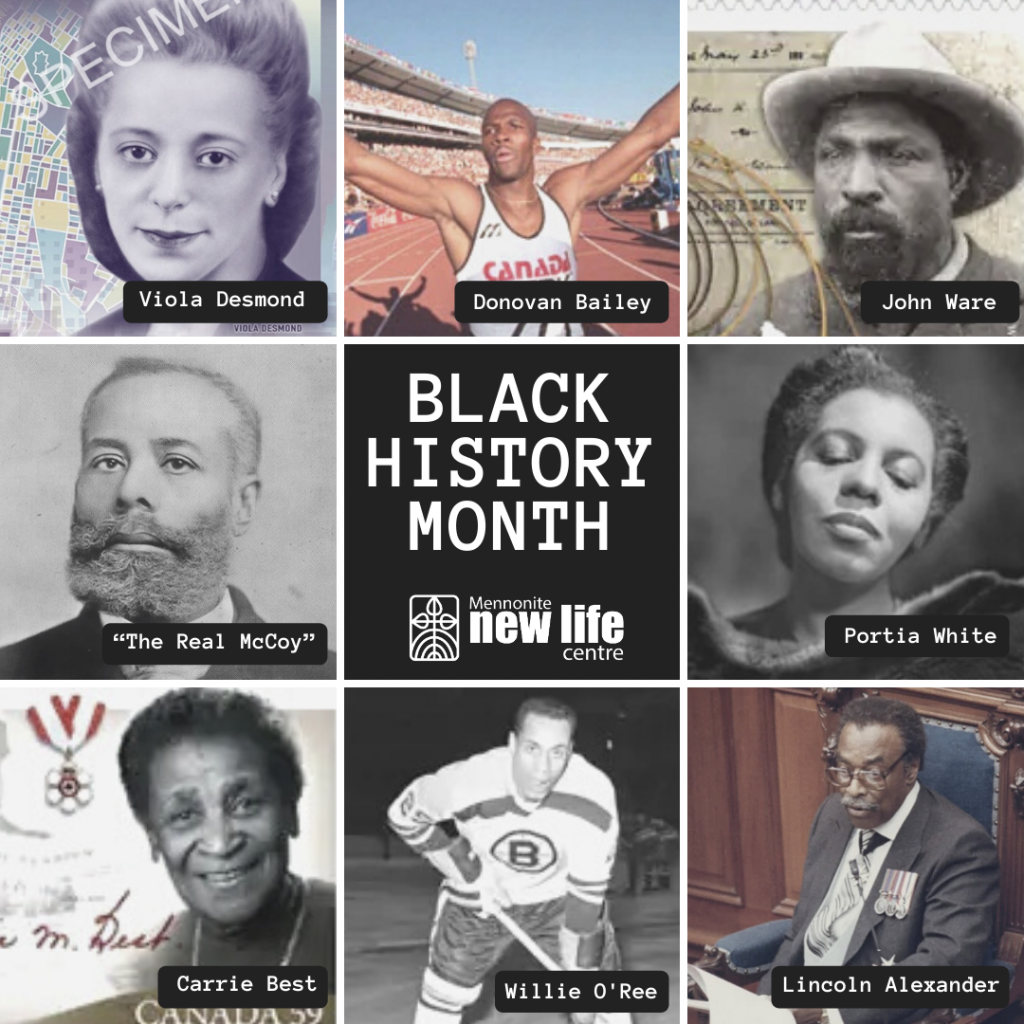February is Black History Month, a time to celebrate the numerous achievements that Canadians of African descent have contributed to this great homeland.
Over the following four weeks, we will focus on a number of prominent Black Canadians who have shaped Canada’s legacy, and influenced it to become the culturally diverse, compassionate and prosperous nation it is today.
Prominent Black Canadians
Viola Desmond
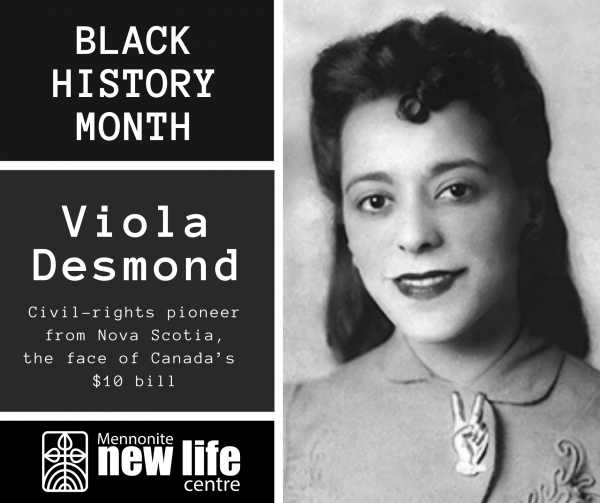
Desmond’s case is one of the most publicized incidents of racial discrimination in Canadian history and helped start the modern civil rights movement in Canada.
In 2018 Desmond became the first Canadian woman to be featured by herself on the face of a banknote — the $10 note.
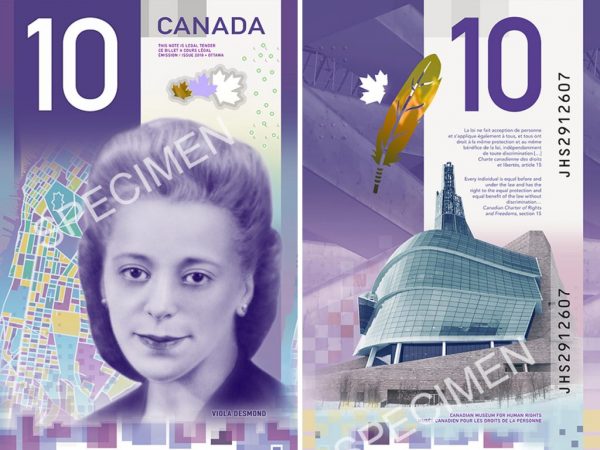
Donovan Bailey
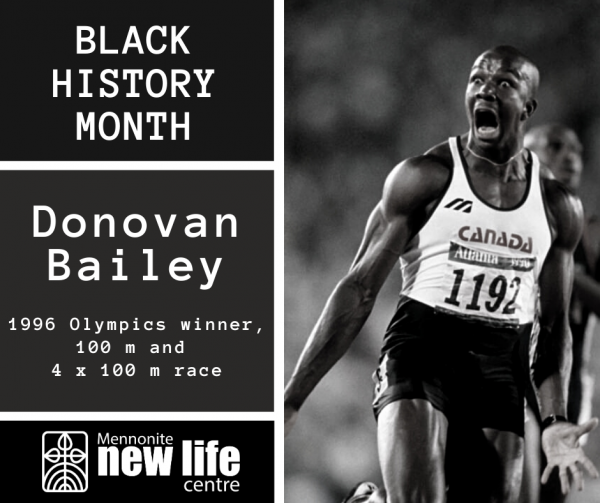
Donovan Bailey became one of Canada’s most iconic sports figures when he set the 100m world record at the 1996 Atlanta Olympics, running a time of 9.84 seconds to become the world’s fastest man.
A week later, Bailey anchored the 4x100m relay team to another gold medal.
Since retirement in 2001, he has worked as a commentator for CBC, CTV and Eurosport.
Read more about Donovan Bailey on his website
John Ware
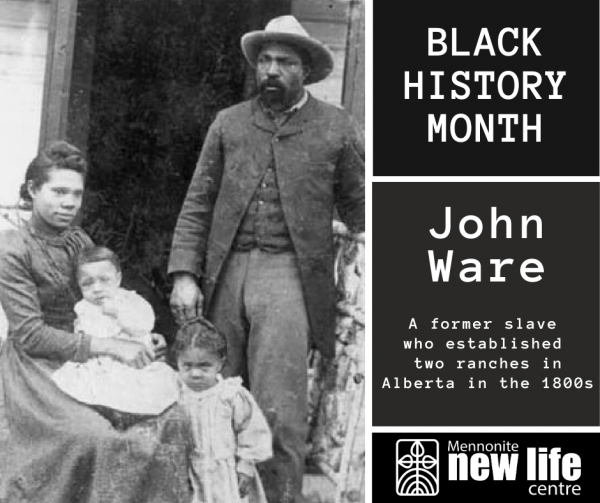
John Ware made history in Alberta for his strength and horsemanship.
Born enslaved in the United States around 1845-50, was declared free after the American Civil War in 1865, and later became a successful rancher who settled near Calgary. He was well-respected as one of the best cowboys in the West, even when anti-Black racism and discrimination were prevalent.
Two of John’s sons later joined the No. 2 Construction Battalion, the only all-Black battalion in Canadian military history.
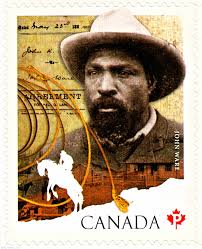
In 2012, in honour of John Ware Canada Post issued a stamp.
Read more about John Ware in The Canadian Encyclopedia
Elijah J. McCoy
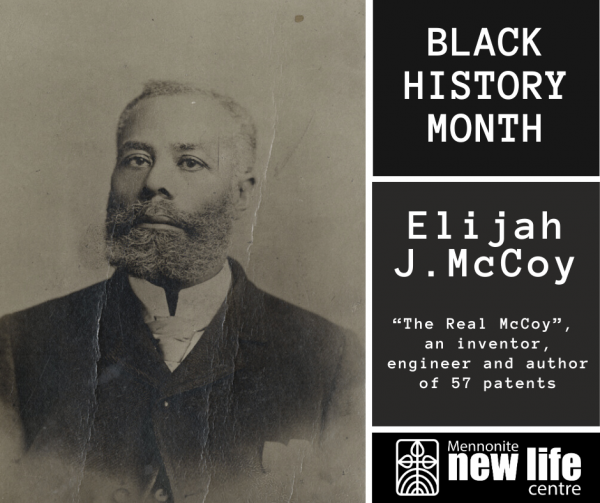
Elijah J. McCoy was an inventor and engineer whose 57 patents and the invention of the locomotive lubrication cup led to the slogan “The real McCoy”, denoting quality.
Elijah was born free in Colchester, Ontario in 1844. When he was fifteen, he left Canada for Edinburgh, Scotland. He studied for five years as a mechanical engineer.
After training, he chose to live in Detroit, Michigan. But McCoy was unable to find engineer position in the United States due to racial barriers. He started carrier on Michigan Central Railroad as a fireman and oiler.
McCoy concerned about deaths caused when workers attempted to lubricate moving machinery. In 1872 he developed a self-lubricating device with a drip cup. It revolutionized the industry. McCoy received 57 patents during his life.
In 1920, McCoy formed the Elijah McCoy Manufacturing Company. It produced lubricators bearing McCoy’s name.
Read more about Elijah McCoy in The Canadian Encyclopedia
Portia White
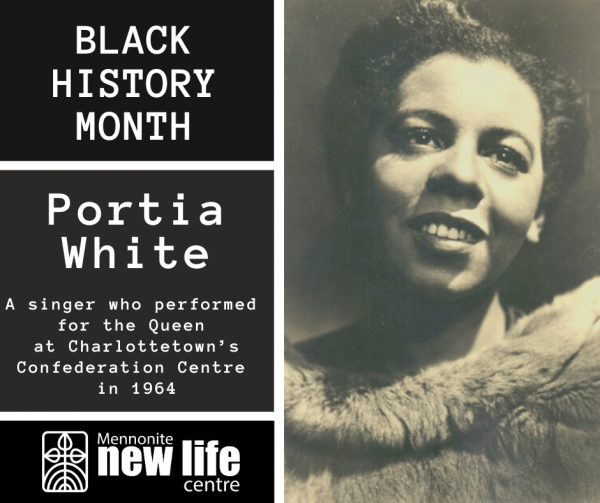
Portia White was the first Black Canadian concert singer, contralto, to achieve world-renowned acclaim.
At the age of six, Portia began singing in her mother’s choir at the Halifax Baptist Church, Nova Scotia.
At eight, she was singing the soprano parts of Italian operas.
She made her national debut in 1941, at age 30, on-stage at Toronto’s Eaton Hall. In 1944, she earned international acclaim by a landmark performance at New York’s Town Hall. It was the first Canadian to perform at the iconic venue.
She was considered one of the best classical singers of the 20th century and became one of the most inspirational women in Canada’s history.
White sang before Queen Elizabeth II and Prince Philip at Charlottetown’s Confederation Centre of the Arts on October 6, 1964.
Her final public performance took place in 1967 in Ottawa.
In 1995, White was named a “person of national historic significance” by the Government of Canada.
Read more about Portia White in The Canadian Encyclopedia
Carrie Best
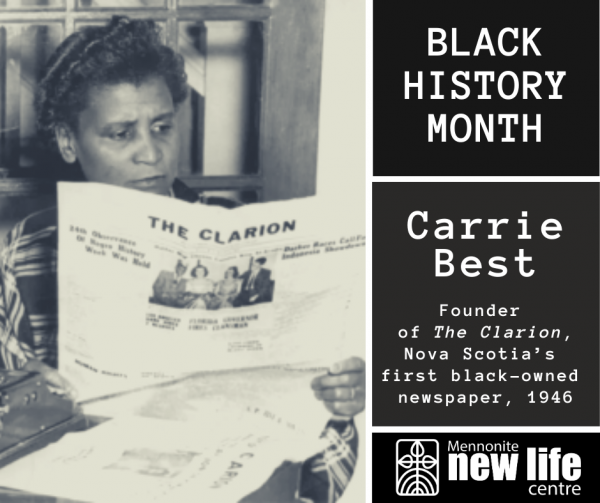
Carrie Best was born in 1903 in New Glasgow, Nova Scotia.
In 1946 Carrie founded the Clarion, a newspaper for the black citizens of New Glasgow. It was the first NS newspaper to be published by a black owner. Best used the newspaper to advocate for Black rights. The Clarion published news and articles about the sport, social activities and other significant events.
In 1954 she started a radio show on CBC Radio – The Quiet Corner.
In 1974, Best was named a member of the Order of Canada.
In 2011, Canada Post issued a stamp that featured Best.
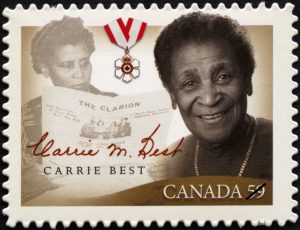
Willie O’Ree
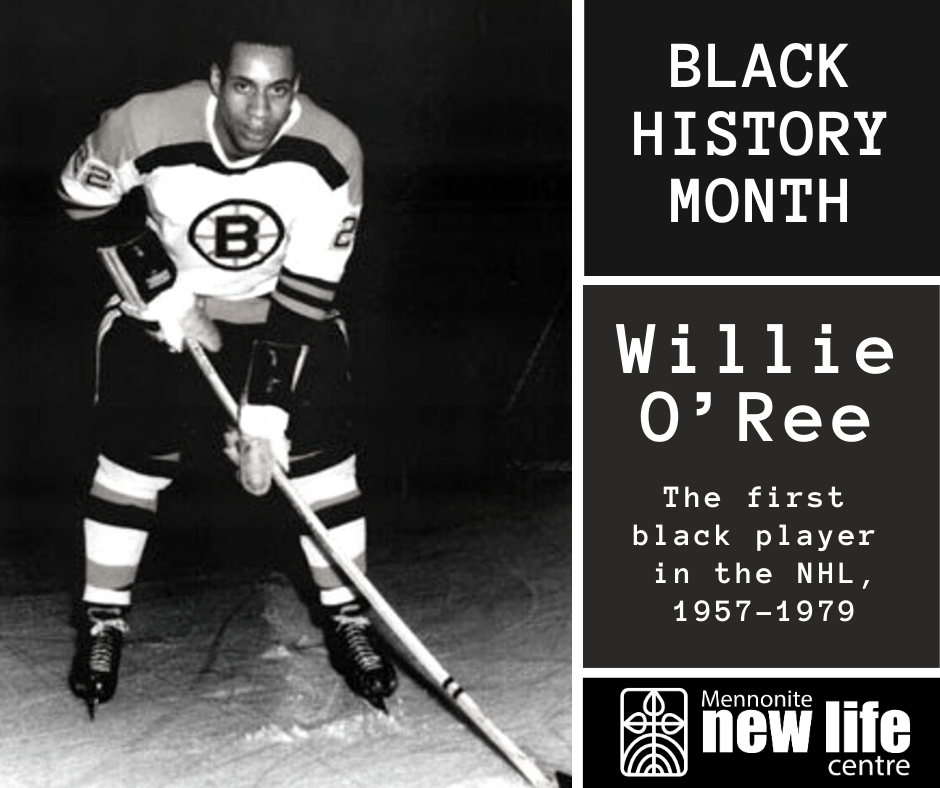
Willie Eldon O’Ree is best known for being the first black player in the National Hockey League.
He was born in Fredericton, New Brunswick, in 1935. To escape slavery, his grandparents left the United States and came to Canada via the Underground Railroad.
O’Ree started playing hockey at age three. He wrote in his book, The Autobiography of Willie O’Ree: Hockey’s Black Pioneer, that colour was never an issue on those early rinks.
Willie joined NHL in 1957. He debuted with the Boston Bruins against the Montreal Canadiens when he was 22. He became the first Black hockey player to play a game in the National Hockey League.
He continued to play until the age of 43.
In 2008, O’Ree received the Order of Canada, the highest civilian award for a Canadian citizen.
Read more about Willie O’Ree in Britannica
Lincoln Alexander
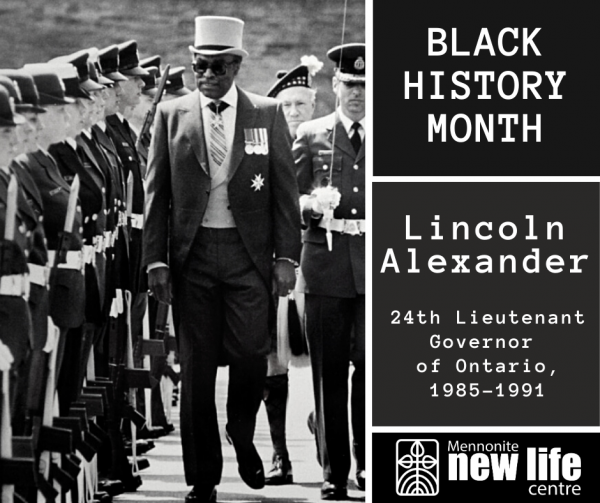
Lincoln MacCauley Alexander was the 24th Lieutenant Governor of Ontario from 1985 to 1991. Alexander became the first black Member of Parliament and the first black federal Cabinet Minister.
Lincoln was born in Toronto in a Caribbean immigrant family in 1922. In 1942, he joined the Royal Canadian Air Force and served as a wireless operator in Manitoba.
Alexander worked successfully as a lawyer and started his own firm. In 1968, he was elected as an MP for Hamilton West. He was re-elected four times.
In 1985, Lincoln Alexander was sworn in as Ontario’s 24th lieutenant-governor, the first Black Canadian to be appointed to the position.
An expressway in Hamilton was named after him. It is commonly called “the Linc” in reference to Alexander’s nickname.
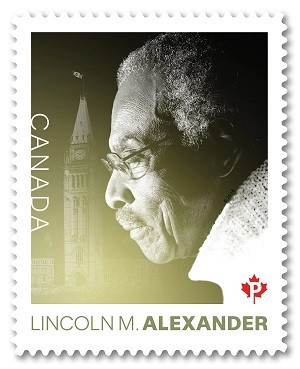
Since 2015, Lincoln Alexander Day has been celebrated on January 21 across Canada.


